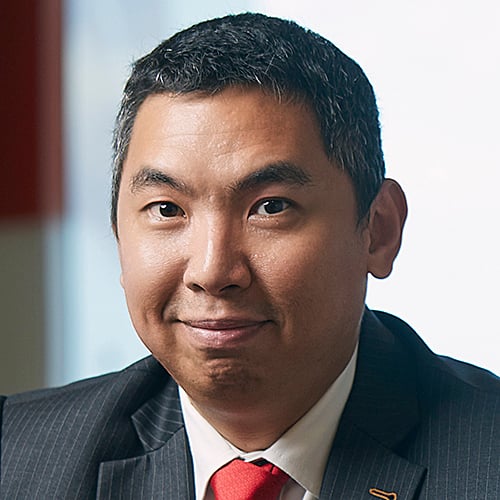FINANCIAL technology is empowering both institutional and private clients, but despite prophecies of their imminent demise due to innovative fintechs, banks remain the dominant financial service players.
Asia, with its growing wealth, burgeoning middle class and ubiquitous smartphone usage, has been quick to accept all of the upside the new technology has delivered to date.
So how have traditional banks managed to stave off the threat from the numerous digital interlopers?
In most cases through a combination of allocating millions of dollars to unlock innovative retail and corporate banking solutions, recruiting from tech leaders, and as a number of big bank CEO’s like to say, “by acting less like a bank and more like a tech company.”
And while the quickly forgettable soundbite is cringeworthy and not always genuine, some banks can back up their claims.
Speaking to The Asset on the sidelines of this year’s Singapore Fintech Festival, Dutch bank ING’s global head of wholesale banking innovation Annerie Vreugdenhil says, “We can no longer just lean on banking products; our industry has to expand our product range and transform ourselves.”
“And actually, this was the vision our of CEO, Ralph Hamers, five years ago when he said that we had to disrupt ourselves for the long-term future of the bank, and for our clients,” she notes.
“One of the difficult things about innovation however is that it takes time to pay off, but because we started early we now have an advantage,” Vreugdenhil adds.
Singapore-based Paul Spronk has been heading the Asian innovation activities for wholesale banking at ING since 2018. He is responsible for origination, validation and scaling of ING’s innovative ventures across the bank’s Asia-Pacific wholesale banking network, with the goal to eventually globalize them.
Developing external partnerships with fintech companies, industry partners and government agencies in the region are among the other activities under his supervision.
Spronk has a background as an entrepreneur in digital retail services - he has directed multiple innovation projects across various wholesale banking business lines and has also been a Distributed Ledger Technology enthusiast since its inception.
According to Spronk his innovation team don't just want to solve and improve internal banking challenges but pro-actively work with clients to expedite solutions to the problems they face in their own industries with digitalization.
In collaboration with the firm’s other labs in London and Amsterdam, together with a special purpose lab in Brussels which concentrates on proof of concepts with fintechs, Spronk says their focus has been to drill into ‘value spaces’.
“These are the sectors where the bank traditionally has a strong footprint. In Singapore and Asia we focus on trade tech, which might sound a bit vague but what we mean by that is the traditional sectors like commodities, shipping, metals and mining, and trade finance,” says Spronk.
“We also do new venture building which basically means that we've seen an opportunity, we've identified an interesting problem to solve together with our clients and then we, ourselves, together with entrepreneurs that we work with, build a venture from scratch and then we bring it to market,” he adds.
The use of artificial intelligence (AI) in the banking industry is being absorbed quickly. The machine learning capabilities are already influencing a range of banking processes.
An example would be machine learning algorithms where predictive models are improving the credit decision processes, reducing risk and unlocking credit to businesses. ING’s AI capabilities were given a boost recently following the announcement that ING would invest in Silicon Valley headquartered fintech start-up Flowcast.
ING Ventures co-led the US$3 million Series A investment with Bitrock Capital. A number of other investors also contributed.
The deal followed a pilot conducted by ING Labs Singapore that involved a variety of the bank’s business lines. Outcomes of the pilot strongly supported ING in its decision to invest in Flowcast.
The ingestion of all things digital is perceived as stimulating the bottom line for lenders but there is another side to the technological transformation - its ESG quotient.
“When we partner with a company we do look at their ESG reputation. When we build new products and services, we take this into account,” Spronk says.
With the Dutch bank working closely with major clients in industries associated with ecological damage such as commodities, shipping, metals and mining, any fintech solutions that assuage environmental harm should be welcomed as an additional windfall.
“I think in general innovation and sustainability do go hand in hand really well simply because innovation is something that's been there forever. So, whether it's the invention of the wheel or blockchain technology, and a focus on getting our world to a better and a more sustainable future, this will require innovations,” Spronk adds.









